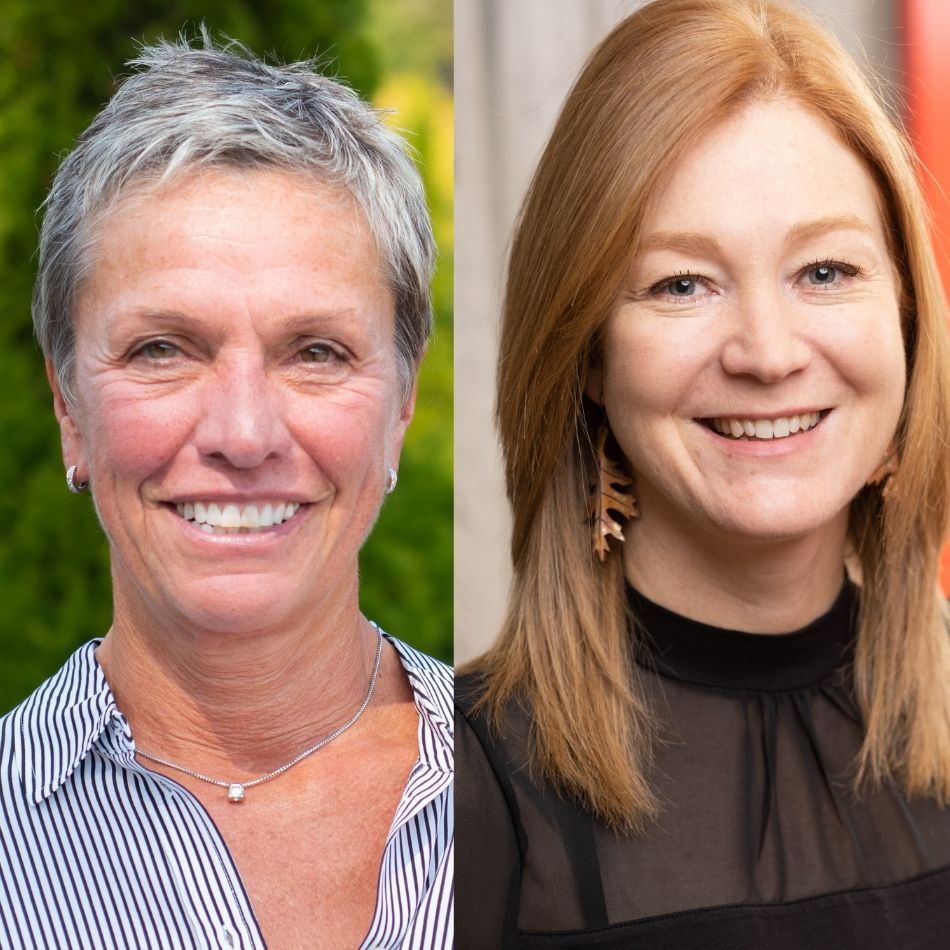This content was first published in Headquarters Magazine, issue February 2022
#MEET4IMPACT are the leaders and pioneers in coaching destination professionals and supporting DMOs in defining, managing, measuring and communicating the societal impacts of their events. Together with the GDS-Movement the first Impact Strategy and Management Masterclass is now available through the GDS-Academy and, to date, 21 destination management organisations have benefited from their insights and hands on teaching experience.
Upskilling yourself, your staff and your stakeholders is key to managing the future where tourism and events not only thrive but give back to the community and ecosystem in ways never before considered. We spoke to Virginie De Fisscher, Senior Director Business Development Economic Sectors from Destination Canada about her experience of the Masterclass and what she discovered.
Destination Canada brought together more than twenty DMOs to participate in the Impact Strategy and Measurement Masterclass ahead of a future research project focused on the legacy and impact of business events that will start in early 2022 spearheaded by Destination Canada. They wanted an opportunity for their DMOs across the country to sing from the same song sheet. To do this there needed to be a common understanding and vocabulary around communicating the impact of business events, alignment to SDGs and overall collaboration of all stakeholders in order to consider and create impact strategies for the long-term future of a DMO.
Please explain the motivation, the insight and/or the support that was required to enable the DMOs to participate?
It really came in multiple phases and approaches. In the wake of the pandemic and recovery for our industry, Destination Canada really stepped up to offer its partners across the country different tools and opportunities to support them in their journey. It aligned extremely well with our future research project and how much the long-term impact of business events is important in our global sector strategy for the attraction of international business events. The masterclasses were one of those opportunities that came along where we thought ‘wow, this is really an amazing opportunity to offer ‘free of charge’ to our partners, a chance to reset, to think about long term strategy and to be able to set themselves up for future success’. It took a lot of motivation from our team to get the project approved and shaped for our DMOs, a lot of insight to see the future gain that we could get out of this and finally it took a lot of personal perseverance to engage our DMOs to dedicate time and human resources to this opportunity. We had to call them personally and explain the concept and scope, including sharing who we (and them) thought from the DMO would be best suited to participate.
Tell us more about the national approach to creating events and experiences with lasting, positive Impact and the role of Business events Canada can play in supporting the goals.
By converging diverse, creative and commercial interests across industries with Canadian innovators, academics, and thought leaders in face-to-face meetings, global conferences have the power to transform communities with the subsequent legacy impacts of business events.
We see this as much more than a marketing tool to attract conferences because Canada’s priority sector strategy is a long-range economic development strategy, that will:
– Drives sector collaboration and innovation across industry, academia and NGOs.
– Showcase local advanced industry, creative, academic sector expertise to a global audience.
– Act as a catalyst for new R&D partnerships, trade and investment.
– Attract international talent and grow high-value employment.
– Motivate convention delegates to return as leisure visitors, or part- or full-time residents.
What are the key Impact goals for the next 5 years?
As a national tourism organisation, we aspire to support our entire tourism ecosystem in Canada for the benefit of our local communities and to maximise our guests’ experiences. Our guests (being our visitors) include business events delegates. So, while we strive to maximise the number of events and visitors that we welcome in Canada, we want to do so in a way that is socially, culturally, economically and environmentally sustainable and successful for both visitors/guests and host communities. This is why we are specific in the type of events that we wish to attract proactively and why we focus on the SDGs for alignment.
Share a great story of your experience in the masterclass – what was the most eye-opening aspect for you?
One of my eye-opening moments was that the take-away of the masterclasses were different depending on which level of the organisation the participant came from. For example, a salesperson would take the learnings and share how they would apply them for securing more bids and being more effective in connecting with potential clients. On the other hand, a person in a senior leadership role would take the learnings and apply them to the bigger strategy of their DMOs or their own destination, bringing it to their board or their stakeholders and looking how to truly revamp and reshape their impact strategy for the long term. I thought that was fascinating to watch and evolve as the classes went on.
Where was the biggest learning overall and how will this affect future strategy development?
I believe (personal Virginie thinking) that the biggest learning is that the concept of measuring the impact of business events solely based on room nights is gone and only the destinations that adapt to the new way of measuring impact for their destination post-pandemic, will thrive and be successful. The masterclass helped me (and my colleagues that participated) in refining and shaping that vision of legacy and impact for Canada as a whole and envisioning the role that Destination Canada can have in achieving it, within the business events realm.
Minto Schneider, Chief Executive Officer at Waterloo Regional Tourism Marketing, was one of the DMOs that benefited from Destination Canada’s recommendation to undertake the Masterclass.
Their organisation had been involved with Green Step Tourism for a number of years and are in the process of building a sustainability plan.
Waterloo Regional Tourism had already hosted events that had zero waste – zero emission status which gave their team firsthand exposure to measurement of impact beyond that of pure economy. She believes that “Masterclass really provided an insight into how we can move forward as a destination to embrace the impact and legacy events and to seek events that match the longer-term goals of our destination. “
These goals include setting up an advisory committee to set goals for the next 5 years that are also likely to include sustainability and education.
She sums up her enjoyment of the Masterclass, “The whole idea of actually targeting events that match the goals of the destination or community was the ‘aha’ moment for me. The examples shared from New Zealand were particularly impactful and when we applied some of our learning against the CanSPEP event (Zero Carbon conference) that we had just hosted the week prior to the training, the pieces fell into place. “
The training came at the right time as they are planning for 2022-25. Learning that sustainability, impact and legacy goals can be incorporated into the overall strategic plan has made a difference in how this strategy will be developed.



